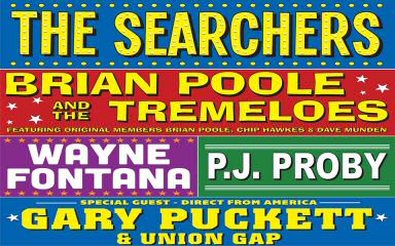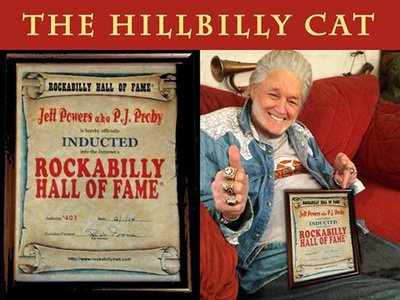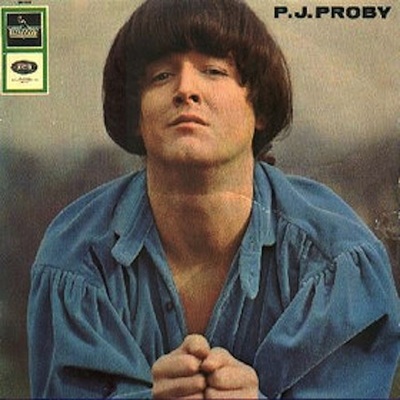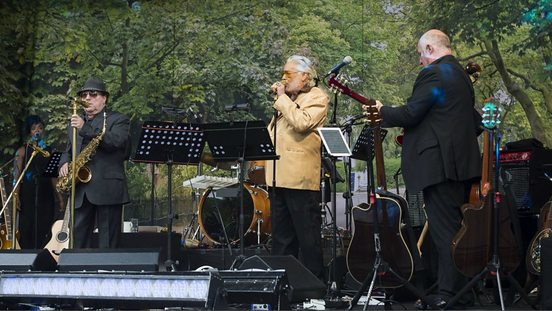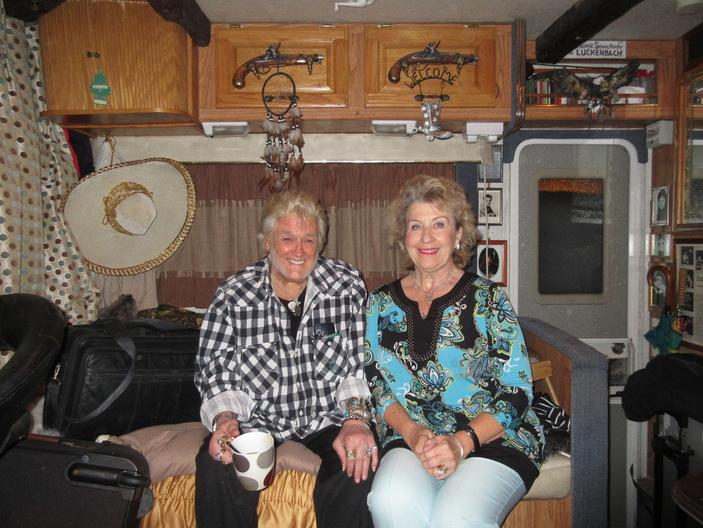Sixties Gold Tour
Cliffs Pavilion
25th September 2016
Cliffs Pavilion
25th September 2016
PJ Proby is alive and well and still rocking them in the aisles
PJ Proby is back on stage rocking and rolling as part of a sixties pop star line up for the Sixties Gold Tour, which is coming to the Cliffs Pavilion, on 25 September.
Controversial, ponytailed PJ Proby, whose trouser splitting shocked the nation, was a Melody Maker teen idol award winner in 1964 and spent 91 weeks in the charts.
For lovers of Sixties music, this is the ultimate, and probably never to be repeated, line-up.
From Liverpool, where it all started, and tipped to be as big as The Beatles, The Searchers’ first single went to No. 1 and led to five more Top 5 hits and a total of 128 weeks in the charts.
Controversial, ponytailed PJ Proby, whose trouser splitting shocked the nation, was a Melody Maker teen idol award winner in 1964 and spent 91 weeks in the charts.
For lovers of Sixties music, this is the ultimate, and probably never to be repeated, line-up.
From Liverpool, where it all started, and tipped to be as big as The Beatles, The Searchers’ first single went to No. 1 and led to five more Top 5 hits and a total of 128 weeks in the charts.
Brian Poole & The Tremeloes, the band that broke the Liverpool stranglehold and went on to have 21 hits that spent over 220 weeks in the UK charts. Wayne Fontana, originally from Manchester, spent over 75 weeks in the British charts with hits such as “Game Of Love”, “Um Um Um Um Um” and “Pamela Pamela”. Special Guest and direct from America, Gary Puckett & Union Gap who’s first single
“Young Girl” was also a UK No. 1.
“Young Girl” was also a UK No. 1.
PJ Proby took some time out of his busy schedule for a Q & A session
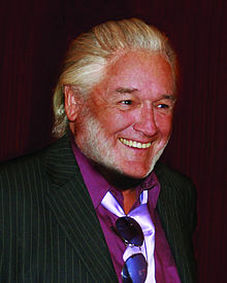
What made you sign up for this tour?
I have done many of these sixties tours, and apart from Gary Puckett, have performed with these guys for over fifty years. I have never met Gary, but have always been a fan. I love performing and although our audiences are usually the fans that have followed us since the sixties, now they bring their teenage children with them. We soon have them rocking in the aisles and find a new younger fan base. I will be supported by the Pacemakers who have backed me before. Gerry Marsden, was scheduled to appear, but had to withdraw due to ill health.
Will you be doing new material?
No, I only sing the old hits, as that is what the public wants on these tours. There isn’t enough time to add in new stuff.
How did you end up in the music business?
During school holidays, I hung around clubs in Houston, and took part in Biff Collie’s radio shows with Tommy Sands. I did all Elvis’s demo songs for the film musicals and he even dated my sister Betty.
When you were a child, your parents divorced and you went to school in a military academy. Why did you never end up in the army, like Elvis?
I was drafted, but I had no interest in going as I was fed up with all the rules and regulations. Most people tried to get out by dressing as women, and saying they were homosexual as it was against the law then. I told them I was an alcoholic and would drink aftershave if no alcohol was available, so they gave me a 4F as unfit for service.
When you first signed up with Liberty Records in the States, you were called Jett Powers. Why did you change your name?
The company changed it, they had signed a new girl singer called Connie Towers and they thought it was too similar. Also, I was too well known locally as I was a bit of a hell raiser and often spent the night in police cells. A friend, Sharon Sheeley, who was the girlfriend of Eddie Cochran, suggested the name PJ Proby so I went with it.
You were brought over to England by Jack Good to appear with the Beatles. Whose idea was it to adopt the style of a ponytail and frilly shirts?
It was mine. I realised that all the successful artists had hair that was identifiable, Elvis had sideburns, and the Beatles were mop tops. When I was at the military academy, I studied English History, and liked the idea of 18th Century sailors who had ponytails, so I copied that. Others later imitated me.
You have taken part in musical theatre shows, have you never thought about just doing straight acting?
When I first went to Hollywood, I wanted to be an actor. I realised very early on that I didn’t fit in because I wasn’t homosexual, and didn’t provide favours to get work. At the time Rock Hudson and Tab Hunter were signed, they called me the Black Widow with a sting. I ended up as a bodyguard for Rock and Liberace to protect them from scandal that would ruin their careers. If anyone hinted at their sexuality, I would take them outside. I could kick ass and take care of myself.
You have a reputation for being fired from shows, would you say you have a self- destruct button?
Not at all. I was usually signed as the famous name to bring in the audience. Then when the shows were successful they would get rid of me, and bring in someone cheaper before the tourist season.
But when you were trying to break America, you managed to get fired from the Dick Clark Tour.
They said I was pretending to smoke marijuana in front of students, but it was really just political.
I have done many of these sixties tours, and apart from Gary Puckett, have performed with these guys for over fifty years. I have never met Gary, but have always been a fan. I love performing and although our audiences are usually the fans that have followed us since the sixties, now they bring their teenage children with them. We soon have them rocking in the aisles and find a new younger fan base. I will be supported by the Pacemakers who have backed me before. Gerry Marsden, was scheduled to appear, but had to withdraw due to ill health.
Will you be doing new material?
No, I only sing the old hits, as that is what the public wants on these tours. There isn’t enough time to add in new stuff.
How did you end up in the music business?
During school holidays, I hung around clubs in Houston, and took part in Biff Collie’s radio shows with Tommy Sands. I did all Elvis’s demo songs for the film musicals and he even dated my sister Betty.
When you were a child, your parents divorced and you went to school in a military academy. Why did you never end up in the army, like Elvis?
I was drafted, but I had no interest in going as I was fed up with all the rules and regulations. Most people tried to get out by dressing as women, and saying they were homosexual as it was against the law then. I told them I was an alcoholic and would drink aftershave if no alcohol was available, so they gave me a 4F as unfit for service.
When you first signed up with Liberty Records in the States, you were called Jett Powers. Why did you change your name?
The company changed it, they had signed a new girl singer called Connie Towers and they thought it was too similar. Also, I was too well known locally as I was a bit of a hell raiser and often spent the night in police cells. A friend, Sharon Sheeley, who was the girlfriend of Eddie Cochran, suggested the name PJ Proby so I went with it.
You were brought over to England by Jack Good to appear with the Beatles. Whose idea was it to adopt the style of a ponytail and frilly shirts?
It was mine. I realised that all the successful artists had hair that was identifiable, Elvis had sideburns, and the Beatles were mop tops. When I was at the military academy, I studied English History, and liked the idea of 18th Century sailors who had ponytails, so I copied that. Others later imitated me.
You have taken part in musical theatre shows, have you never thought about just doing straight acting?
When I first went to Hollywood, I wanted to be an actor. I realised very early on that I didn’t fit in because I wasn’t homosexual, and didn’t provide favours to get work. At the time Rock Hudson and Tab Hunter were signed, they called me the Black Widow with a sting. I ended up as a bodyguard for Rock and Liberace to protect them from scandal that would ruin their careers. If anyone hinted at their sexuality, I would take them outside. I could kick ass and take care of myself.
You have a reputation for being fired from shows, would you say you have a self- destruct button?
Not at all. I was usually signed as the famous name to bring in the audience. Then when the shows were successful they would get rid of me, and bring in someone cheaper before the tourist season.
But when you were trying to break America, you managed to get fired from the Dick Clark Tour.
They said I was pretending to smoke marijuana in front of students, but it was really just political.
The incident of the split trousers on the Cilla Black tour resulted in you being dropped. It sent your career into decline, but nowadays the show would be a sell-out. How do you feel about the injustice of that?
Of course, Iggy Pop can go on in see through trousers and no underwear and nobody cares. The reason for my sacking was nothing to do with the trousers. The manager of Tom Jones paid a lot of money to put Tom in instead of me, and they were seeking an opportunity to do so, but the Delfonts wouldn’t allow it, as I was the bigger name. Mary Whitehouse had already been protesting about me being a bad influence with my movements on stage. I was seen as a risk to young girls because they became hysterical, screamed and shouted and ran down the aisles trying to tear my clothes off. They were waiting for me to do something outrageous so they could use it as an excuse to sack me and put in Tom. The trouser splitting meant they could fire me for so-called moral reasons. The split was only across the knees. They weren’t used to rockers like me in the UK. I’d been the first person to boogie round the stage. I was raised with black music in the States. Everyone used to move around, and rock and roll on stage, like James Brown. All the Americans did it, the Brits used to just stand and sing. After that, I was seen as a risk to young girls, I could only get work in clubs where there were adults.
In the 80s you were out of the music scene, and known to have a drink problem, yet were signed with Savoy Records, how did that happen?
I was in bad shape and drinking a lot. At the time, I was living in Charlotte Bronte’s barn in Haworth, and generally helping on the farms, haymaking, tending sheep etc. The producers Butterworth and Britton contacted me to record with them, but they chose all the songs. None of the material was familiar to me. I didn’t know anything about Bowie or Marc Almond; they paid me with Bourbon so I just went along with it. The album I made was called Hardcore, it was critically well received, but it was touted around record companies, and no one wanted to know.
There was a rumour you duetted with Madonna on it.
No, that wasn’t true.
You got back into music in the 90s with Bill Kenwright’s Good Rocking Tonite, the life story of Jack Good. How did you get that job?
I was fifty-three years old, and living in Florida, when I had a major heart attack and actually died. When I recovered, I gave up drinking. I didn’t make a big thing about giving up the drink like others in the business did, so promoters thought I was dead. I returned to the UK, and looked so rough that the authorities wouldn’t let me stay, as I didn’t look like my passport. They let me in for two weeks to provide evidence that I worked here. I remembered that in 1982 I’d been in Kenwright’s Joseph and his Technicolour Dreamcoat, but walked out before the second act. He never spoke to me after that, but I rang his office, hoping someone would provide evidence for the authorities. Instead, he came on the phone like an old friend and paid for a cab for me to go and see him, I told him I was dry, and he offered me the job in Good Rocking Tonite. I had fallen out with Jack Good in the past, so I thought he wouldn’t want me in it, but Bill suggested that I try it out in Liverpool, to see how it worked out. Although, I wasn’t in good shape, I received standing ovations every night. Performing became a kind of therapy. I got stronger physically, and so did my voice, it went from baritone to tenor. I then appeared in the show Only the Lonely as a friend of Roy Orbison. Then I asked Bill if I could do Blood Brothers, but he wasn’t sure I could remember the lines, so suggested me playing in Elvis the Musical again. I played Elvis at 42 years. Later I toured with The Who in Quadrophenia.
Of course, Iggy Pop can go on in see through trousers and no underwear and nobody cares. The reason for my sacking was nothing to do with the trousers. The manager of Tom Jones paid a lot of money to put Tom in instead of me, and they were seeking an opportunity to do so, but the Delfonts wouldn’t allow it, as I was the bigger name. Mary Whitehouse had already been protesting about me being a bad influence with my movements on stage. I was seen as a risk to young girls because they became hysterical, screamed and shouted and ran down the aisles trying to tear my clothes off. They were waiting for me to do something outrageous so they could use it as an excuse to sack me and put in Tom. The trouser splitting meant they could fire me for so-called moral reasons. The split was only across the knees. They weren’t used to rockers like me in the UK. I’d been the first person to boogie round the stage. I was raised with black music in the States. Everyone used to move around, and rock and roll on stage, like James Brown. All the Americans did it, the Brits used to just stand and sing. After that, I was seen as a risk to young girls, I could only get work in clubs where there were adults.
In the 80s you were out of the music scene, and known to have a drink problem, yet were signed with Savoy Records, how did that happen?
I was in bad shape and drinking a lot. At the time, I was living in Charlotte Bronte’s barn in Haworth, and generally helping on the farms, haymaking, tending sheep etc. The producers Butterworth and Britton contacted me to record with them, but they chose all the songs. None of the material was familiar to me. I didn’t know anything about Bowie or Marc Almond; they paid me with Bourbon so I just went along with it. The album I made was called Hardcore, it was critically well received, but it was touted around record companies, and no one wanted to know.
There was a rumour you duetted with Madonna on it.
No, that wasn’t true.
You got back into music in the 90s with Bill Kenwright’s Good Rocking Tonite, the life story of Jack Good. How did you get that job?
I was fifty-three years old, and living in Florida, when I had a major heart attack and actually died. When I recovered, I gave up drinking. I didn’t make a big thing about giving up the drink like others in the business did, so promoters thought I was dead. I returned to the UK, and looked so rough that the authorities wouldn’t let me stay, as I didn’t look like my passport. They let me in for two weeks to provide evidence that I worked here. I remembered that in 1982 I’d been in Kenwright’s Joseph and his Technicolour Dreamcoat, but walked out before the second act. He never spoke to me after that, but I rang his office, hoping someone would provide evidence for the authorities. Instead, he came on the phone like an old friend and paid for a cab for me to go and see him, I told him I was dry, and he offered me the job in Good Rocking Tonite. I had fallen out with Jack Good in the past, so I thought he wouldn’t want me in it, but Bill suggested that I try it out in Liverpool, to see how it worked out. Although, I wasn’t in good shape, I received standing ovations every night. Performing became a kind of therapy. I got stronger physically, and so did my voice, it went from baritone to tenor. I then appeared in the show Only the Lonely as a friend of Roy Orbison. Then I asked Bill if I could do Blood Brothers, but he wasn’t sure I could remember the lines, so suggested me playing in Elvis the Musical again. I played Elvis at 42 years. Later I toured with The Who in Quadrophenia.
So it was thanks to Bill Kenwright you went back to music.
Yes, Jack Good was my mentor, and Bill was my saviour. Thanks to him, I sorted myself out. I had to do everyday things. When I was famous, I relied on others to do stuff for me. I had to book my own trains, hire taxis and find digs etc. Before I’d always travelled in limousines and had wives or managers doing it for me. I had no time for drinking, as I was too busy, then I realised that I didn’t need to drink, I was having a good time.
Was it a surprise when you were inducted into the Internet Rockabilly Hall of Fame in January 2016?
I was amazed; the Hall of Fame was created to give recognition to Artists who made the rock scene happen before 1962. A country singer-songwriter Lin Butler, who lives in Georgia, and has been a fan of mine for years nominated me. He has sent me some of his work and I hope to make a recording of his material.
Your career was always in England. Why did it never take off in the States?
Liberty, my record company in the States didn’t own the publishing rights to my hits like Maria, and Somewhere, so weren’t interested in pushing them. EMI in England did push them. I now have my own independent record label and publishing company. I am trying to learn more about the digital side of things, because that’s the way the music business works now. It has to be downloads, iTunes, and the internet, supported by expensive videos. It’s not about the music anymore, it is all about making money. There is no airplay – no one is interested if you are well known. It is all about Simon Cowell and X factor; they pick you up and drop you on a whim. Even Roger Daltrey of the Who, can’t get a deal.
Where you insulted when Van Morrison recorded a track on his album called, ‘Whatever Happened to PJ Proby?
Not at all, I have known Van for over fifty years. I used to play football in his team but I can’t kick a ball, so he gave me beers to sit out. I didn’t know he was writing it, but my sister played it to me when I was visiting Texas. Years later, he called me to duet on his album with it and later I guested on his tours. I have written a number in reply and it will be out on my new album Enigma in Gold Volume 3.
So, you are still writing material. In the past, you wrote many big hits.
I had a hit with Sweets for my Sweet by the Searchers, wrote numbers for Elvis, and Leroy Van Dyke. A song I wrote called I Only Came to Dance with You sung by the Dalton Brothers featured a young unknown Scott Walker. I have known him for over fifty years too. I am still busy writing and there are many of my songs on my new release.
You have had such an interesting life, have you thought of writing your life story?
I did, but Random House the publisher said it was too long. I told them if I make it shorter, I’ll have left out half of my life. I am looking for an advance from a publisher and not just royalties. I never got any royalties for singing on my hit records, and neither did many other sixties pop stars.
When the Sixties Gold Tour is over what are your plans?
I am off to Australia on a Rock the Boat Tour. It was supposed to be with Peter Noone of Herman’s Hermits, but he has dropped out, so they have booked Chubby Checker. The pair of us will be rocking around that stage.
You are now in your seventies do you intend to retire?
Never, what would I do? I’ve been married six times, been dry twenty-four years, and never stand still. I haven’t grown up; I feel youthful and live in a fantasy world. I’m not interested in world problems and politics I just love rocking.
I will be arriving in Southend in my Winnebago and parking it outside the stage door of the Cliffs Pavilion. I’m in better shape than ever, me and my ponytail will still be rocking them in the aisles.
Yes, Jack Good was my mentor, and Bill was my saviour. Thanks to him, I sorted myself out. I had to do everyday things. When I was famous, I relied on others to do stuff for me. I had to book my own trains, hire taxis and find digs etc. Before I’d always travelled in limousines and had wives or managers doing it for me. I had no time for drinking, as I was too busy, then I realised that I didn’t need to drink, I was having a good time.
Was it a surprise when you were inducted into the Internet Rockabilly Hall of Fame in January 2016?
I was amazed; the Hall of Fame was created to give recognition to Artists who made the rock scene happen before 1962. A country singer-songwriter Lin Butler, who lives in Georgia, and has been a fan of mine for years nominated me. He has sent me some of his work and I hope to make a recording of his material.
Your career was always in England. Why did it never take off in the States?
Liberty, my record company in the States didn’t own the publishing rights to my hits like Maria, and Somewhere, so weren’t interested in pushing them. EMI in England did push them. I now have my own independent record label and publishing company. I am trying to learn more about the digital side of things, because that’s the way the music business works now. It has to be downloads, iTunes, and the internet, supported by expensive videos. It’s not about the music anymore, it is all about making money. There is no airplay – no one is interested if you are well known. It is all about Simon Cowell and X factor; they pick you up and drop you on a whim. Even Roger Daltrey of the Who, can’t get a deal.
Where you insulted when Van Morrison recorded a track on his album called, ‘Whatever Happened to PJ Proby?
Not at all, I have known Van for over fifty years. I used to play football in his team but I can’t kick a ball, so he gave me beers to sit out. I didn’t know he was writing it, but my sister played it to me when I was visiting Texas. Years later, he called me to duet on his album with it and later I guested on his tours. I have written a number in reply and it will be out on my new album Enigma in Gold Volume 3.
So, you are still writing material. In the past, you wrote many big hits.
I had a hit with Sweets for my Sweet by the Searchers, wrote numbers for Elvis, and Leroy Van Dyke. A song I wrote called I Only Came to Dance with You sung by the Dalton Brothers featured a young unknown Scott Walker. I have known him for over fifty years too. I am still busy writing and there are many of my songs on my new release.
You have had such an interesting life, have you thought of writing your life story?
I did, but Random House the publisher said it was too long. I told them if I make it shorter, I’ll have left out half of my life. I am looking for an advance from a publisher and not just royalties. I never got any royalties for singing on my hit records, and neither did many other sixties pop stars.
When the Sixties Gold Tour is over what are your plans?
I am off to Australia on a Rock the Boat Tour. It was supposed to be with Peter Noone of Herman’s Hermits, but he has dropped out, so they have booked Chubby Checker. The pair of us will be rocking around that stage.
You are now in your seventies do you intend to retire?
Never, what would I do? I’ve been married six times, been dry twenty-four years, and never stand still. I haven’t grown up; I feel youthful and live in a fantasy world. I’m not interested in world problems and politics I just love rocking.
I will be arriving in Southend in my Winnebago and parking it outside the stage door of the Cliffs Pavilion. I’m in better shape than ever, me and my ponytail will still be rocking them in the aisles.
The tour dates are as follows:-
SIXTIES GOLD TOUR (until 1 November)
Sun 25 Sept: SOUTHEND Cliffs Pavilion
Wed 28 Sept: IPSWICH Regent Theatre
Thur 29 Sept: CAMBRIDGE Corn Exchange
Wed 5 Oct: LLANDUDNO Venue Cymru
Thur 6 Oct: NORTHAMPTON Derngate Theatre
Fri 7 Oct: MARGATE Winter Gardens
Sat 8 Oct: ST ALBANS Alban Arena
Sun 9 Oct: DARTFORD Orchard Theatre
Wed 12 Oct: CARDIFF St David’s Hall
Thur 13 Oct: SOUTHAMPTON Mayflower Theatre
Fri 14 Oct: WEYMOUTH Pavilion Theatre
Sat 15 Oct: PLYMOUTH Pavilion Theatre
Sun 16 Oct: BRISTOL Colston Hall
Wed 19 Oct: EASTBOURNE Congress Theatre
Thur 20 Oct: LEICESTER De Montfort Hall
Fri 21 Oct: LIVERPOOL Philharmonic Hall
Sat 22 Oct: DONCASTER The Dome
Sun 23 Oct: BIRMINGHAM Symphony Hall
Tue 25 Oct: GATESHEAD The Sage
Wed 26 Oct: GLASGOW Concert Hall
Thur 27 Oct: INVERNESS Eden Court
Sat 29 Oct: DUNDEE Caird Hall
Sun 30 Oct: LEEDS Grand Theatre
Tue 1 November: MANCHESTER Bridgewater Hall
SIXTIES GOLD TOUR (until 1 November)
Sun 25 Sept: SOUTHEND Cliffs Pavilion
Wed 28 Sept: IPSWICH Regent Theatre
Thur 29 Sept: CAMBRIDGE Corn Exchange
Wed 5 Oct: LLANDUDNO Venue Cymru
Thur 6 Oct: NORTHAMPTON Derngate Theatre
Fri 7 Oct: MARGATE Winter Gardens
Sat 8 Oct: ST ALBANS Alban Arena
Sun 9 Oct: DARTFORD Orchard Theatre
Wed 12 Oct: CARDIFF St David’s Hall
Thur 13 Oct: SOUTHAMPTON Mayflower Theatre
Fri 14 Oct: WEYMOUTH Pavilion Theatre
Sat 15 Oct: PLYMOUTH Pavilion Theatre
Sun 16 Oct: BRISTOL Colston Hall
Wed 19 Oct: EASTBOURNE Congress Theatre
Thur 20 Oct: LEICESTER De Montfort Hall
Fri 21 Oct: LIVERPOOL Philharmonic Hall
Sat 22 Oct: DONCASTER The Dome
Sun 23 Oct: BIRMINGHAM Symphony Hall
Tue 25 Oct: GATESHEAD The Sage
Wed 26 Oct: GLASGOW Concert Hall
Thur 27 Oct: INVERNESS Eden Court
Sat 29 Oct: DUNDEE Caird Hall
Sun 30 Oct: LEEDS Grand Theatre
Tue 1 November: MANCHESTER Bridgewater Hall

